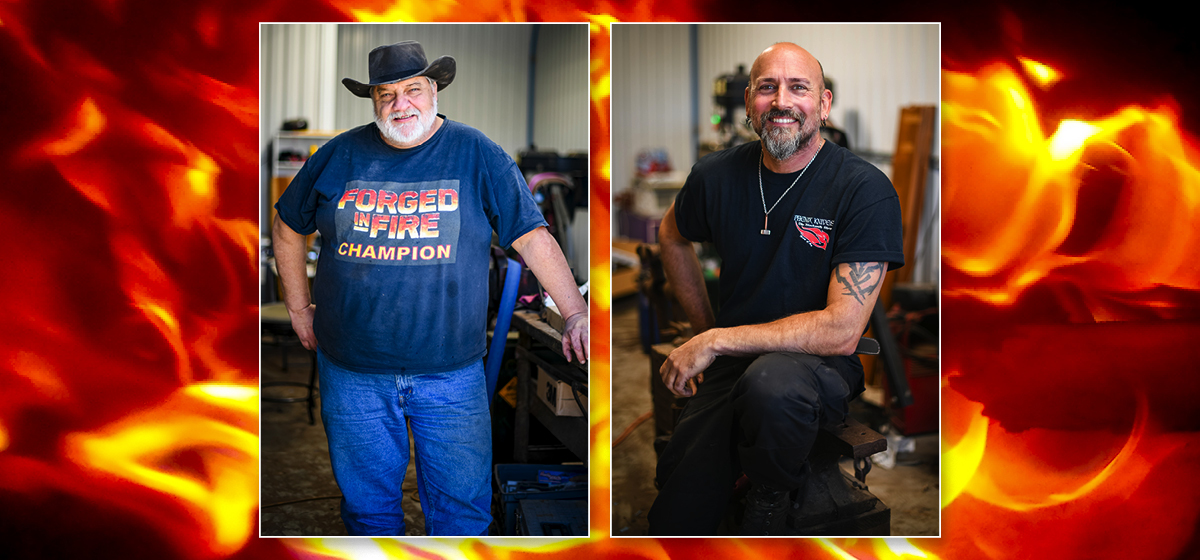Photos by Libby Rogers
 Although Rissie Owens “retired” in 2015 after almost three decades of work in the fields of criminal justice and education, she remains an active force. Her diverse professional roles took her across the state of Texas, while providing her with numerous opportunities to serve—opportunities that continue even after retirement. She teaches part-time at Sam Houston State University, serves on the Huntsville Independent School District Board of Trustees, and she and her husband, Ed Owens, continue to be active in the community.
Although Rissie Owens “retired” in 2015 after almost three decades of work in the fields of criminal justice and education, she remains an active force. Her diverse professional roles took her across the state of Texas, while providing her with numerous opportunities to serve—opportunities that continue even after retirement. She teaches part-time at Sam Houston State University, serves on the Huntsville Independent School District Board of Trustees, and she and her husband, Ed Owens, continue to be active in the community.
I grew up in Bryan, Texas, attending Bryan High. I was active, being on student council, class council, Future Teachers, and band. I also attended an alternative school, which was how we could take what it is today called “dual credit,” so I took courses on Texas A&M’s campus as well as at Bryan High School.
I am from a family of educators, and I graduated from high school thinking I would major in education. A cousin of mine graduated with me at Bryan High, and we came to Huntsville to visit SHSU, a visit that resulted in a funny story. I was never good with directions, and we got lost, so we stopped and asked these guys who were doing yardwork. I asked, “How do we get to Sam Houston State University?” One of the guys approached the car, and that prompted a man in a gray uniform to approach us rapidly, yelling at the guy in white to move away from the car. I said, “Joyce, I think we may have done something wrong.” As you may have guessed, we had asked inmates for directions. The correctional officer set us straight, then provided us with directions to campus. Once I got to SHSU, I heard a lot about the CJ program, and after learning more, I switched majors. I thought my mother, who had taught school for 30 years, would be upset, but she wasn’t.
 What was your most memorable moment at SHSU?
What was your most memorable moment at SHSU?I have many fond memories from SHSU. I met my husband Ed here. I joined a sorority, Delta Sigma Theta. It was a home away from home for me. I had a sense of a larger family on campus, and I made many friends for life. I think that is what is most memorable: the family feel.
My first job was in Brazos County, as a court coordinator. I wanted to work in probation, but I did not have case management experience. So, I applied and was hired to work as a caseworker with MHMR in Brazos County.
This was the beginning of what Rissie refers to as her “tour of Texas,” a tour that included moving 17 times with her husband Ed, who was originally hired by TDCJ as a correctional officer and worked his way up to Deputy Executive Director. These moves also provided Rissie with diverse professional opportunities.
The caseworker position provided me with case management experience, and it also offered me the skills needed for my next position as mental health coordinator with TDCJ. I then moved to being grievance coordinator in Inmate Grievances, and then to my final position with TDCJ in classification. In 1990, we moved to Galveston, and I worked as a social worker with UTMB. The next year, I accepted a position with the Galveston County Adult Probation Department. During my tenure there, I was a fortunate to supervise a felony caseload, and I also earned my MA degree (at the University of Houston-Clear Lake). In 1993, I moved to Amarillo to serve as a drug prevention specialist in the Amarillo School District. I returned to Huntsville in 1995 and worked as a psychologist in the Huntsville Independent School District. Then, in 1997, I was appointed by then Governor Bush to the Texas Board of Pardons and Parole. I served on the board for 18 years, the first six years as a board member and the last 12 years as the chair. I retired in 2015, and I now serve as an adjunct professor in the College of Criminal Justice at SHSU, as a trainer for New Parole Board Chairs offered by the National Institute of Corrections (NIC), and I also do criminal justice consulting.
 As you mentioned, you spent 18 years on the Board of Pardons and Paroles. For the public who may not know much about this entity, can you describe their mission?
As you mentioned, you spent 18 years on the Board of Pardons and Paroles. For the public who may not know much about this entity, can you describe their mission?The Board’s role is to review offenders eligible for parole in Texas and determine if they should be released. If the offender is released, the Board imposes conditions. For example, if the inmate had problems with substance abuse, then the Board could impose a condition for them to get substance abuse treatment. If the inmate is released and violates parole, then the Board reviews the case again, this time to see if additional conditions can be imposed that might help them become successful citizens. The Board also makes clemency recommendations to the Governor.
The Board looks at the seriousness of the offense that was committed, the criminal history of the offender, whether they have previously been paroled, the offender’s behavior while in prison, the offender’s age and length of time since the offense, and also letters that are written in favor (or in opposition to) the release. But each case is individual, and each Board member sees things a bit differently.
The Chair and the Board members are appointed by the Governor with the advice and consent of the Senate for six-year terms. The Chair is the administrative head of the agency, which includes approximately 600 employees. The Chair reports to the Governor and is the liaison between the legislature and the agency. Board members are the policy-making body for the agency. There are seven board offices in the state, and the Commissioners and staff in each office report to the Board member. The offices are located in Amarillo, Angleton, Austin, Gatesville, Huntsville, Palestine, and San Antonio.
The Board was grateful to Senator Whitmire and Representative Madden for passing legislation that provided additional funding for treatment programs. This increased the number of inmates who could go to treatment programs and then be released upon successful completion of the program. We saw increased parole approval rates—while also seeing reduced revocation and recidivism rates. The right offenders were being released. In 2009, the Legislature placed approximately 400 institutional parole officers under the Board’s umbrella, and this allowed us to improve the flow of information to voters during the parole review process. And in 2013, we received funds from the legislature to build new offices and hire other state employees in the Palestine and Huntsville areas.
Ed is still very active in the community. He is a member of Alpha Phi Alpha fraternity, and he is the president of the motorcycle club, “The Street Lords.” They provide toys to families during Christmas, turkeys during Thanksgiving, and school supplies to families that need them. We are members of Family Faith Church. My mother-in-law, Hattye Owens, is a retired teacher. She taught at HISD for 30 years. She and I are both members of Delta Sigma Theta, and our sorority provides Thanksgiving dinner for the elderly and to the Good Shepherd Mission; we do a Toys 4 Tots drive during Christmas; and we host a College Bound seminar.
My son Trey graduated from Huntsville High School in 2005, earned his bachelor of science at SHSU, and earned his MA from the University of St. Thomas. He is the Senior Legislative Aide to Senator John Whitmire.
 You also now teach at SHSU. What do you find rewarding about teaching?
You also now teach at SHSU. What do you find rewarding about teaching?I teach two classes in the College of Criminal Justice: Special Offenders with Special Needs, and Legal Aspects of Corrections. My classes typically consist of juniors and seniors, and I do a lot of hands-on activities, because I want them to understand what it is like in the real world. I do a lecture on a topic, then we might have a session where I split them up and they do a PSI, a pre-sentence investigation. They play different roles, such as the offender, the judge, and the probation officer. It helps them learn about the different roles and positions within the criminal justice system. I also invite guest speakers to come to the classroom. These are people I consider to be experts, and it provides students with a different, and I think, valuable perspective. It’s rewarding when students learn, when they understand new things, and when they are able to put new things into practice because of that learning.
I am on the school board because I want to help kids! I am the only HISD Trustee presently serving that did not graduate from Huntsville High School, but “I got here as soon as I could,” and I have lived in this community for more than 20 years. I am very grateful for the staff and teachers in the district that have been here with us through our struggles and have worked and continue to work with our new superintendent, Dr. Shepherd, to improve the district. We want to give every student the best education possible. We owe it to the students to provide a good foundation that will enable them to proceed to the next level.
Do your best. My mom was a teacher, and she told me to do my best. I tried to do my best, and often, it was me trying for her. People should set goals, pursue those goals, do their best, and avoid negative thoughts and negative people.



